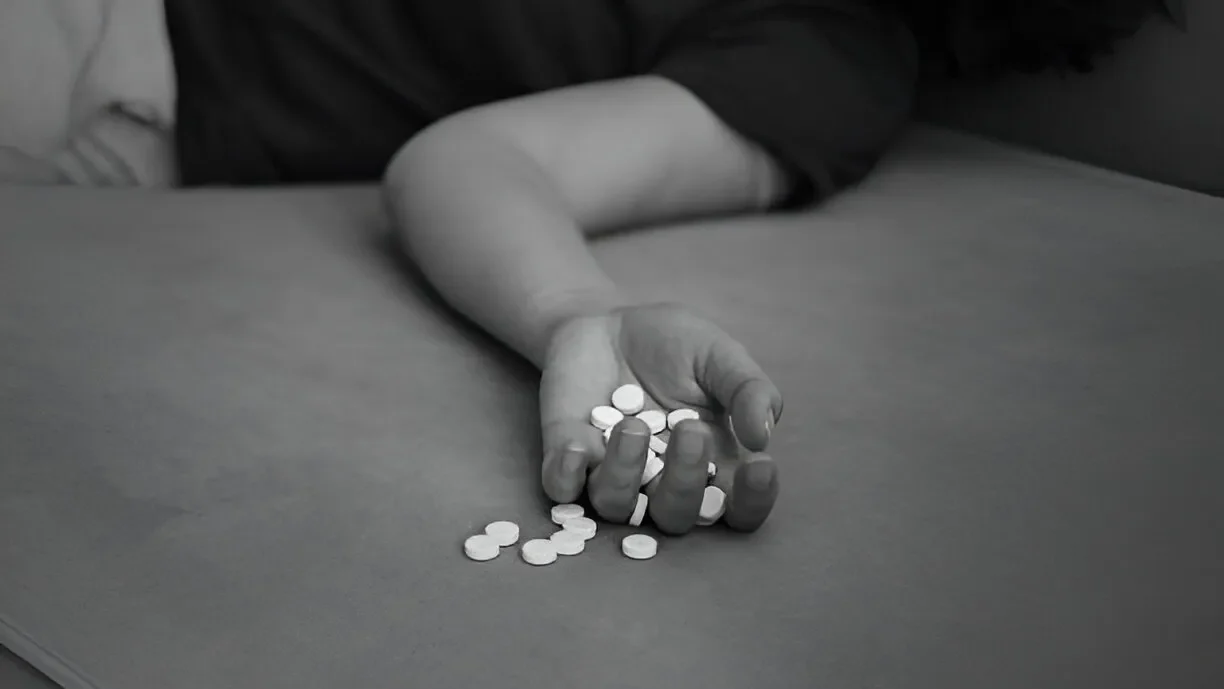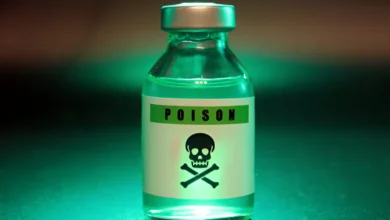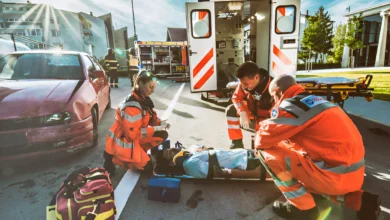“Drug Overdose”

Drug overdose represents a significant public health crisis that impacts individuals and communities around the globe. As the misuse of both prescription medications and illegal substances continues to escalate, gaining a deeper understanding of drug overdose is essential. This article explores the complexities of drug overdose, including its definition, various types, prevalence, causes, signs and symptoms, diagnostic methods, and treatment strategies.
Definition
A drug overdose occurs when an individual consumes a quantity of a substance that exceeds what the body can safely process, leading to toxic effects. This situation can arise from both legal drugs, such as prescription medications, and illegal substances. The consequences of an overdose can range from mild discomfort to severe health complications, including coma or death. The severity often depends on the type of drug, the amount taken, and the individual’s health condition.
Types of Drug Overdose
Drug overdoses can be classified into several categories based on the substances involved. The primary types include:
-
Acute Overdose
Acute overdose happens when a large amount of a drug is consumed in a short time frame. This can occur accidentally, such as taking an excessive number of painkillers, or intentionally, as seen in suicide attempts. Acute overdoses often lead to immediate and serious health repercussions.
-
Chronic Overdose
Chronic overdose results from the prolonged use of a drug, often at higher than recommended doses. This form of overdose can develop gradually, especially with medications that require long-term use, like opioids or benzodiazepines. Chronic overdoses may result in significant long-term health problems.
-
Polydrug Overdose
Polydrug overdose occurs when multiple substances are taken at the same time, which can greatly increase the risk of severe health issues. For example, mixing opioids with alcohol or benzodiazepines can enhance the depressant effects on the central nervous system, potentially leading to respiratory failure.
-
Intentional Overdose
Intentional overdose typically involves the deliberate ingestion of a drug with the intent to harm oneself. This is often linked to mental health conditions, such as depression or anxiety, and requires immediate psychological intervention alongside medical treatment.
-
Accidental Overdose
Accidental overdose is particularly common among children and occurs when individuals unintentionally ingest a toxic substance or an excessive dose of medication. This type of overdose often involves household medications or street drugs.
Prevalence
The prevalence of drug overdose varies significantly across different populations and regions. According to the Centers for Disease Control and Prevention (CDC), the number of drug overdose cases has surged in recent years, with opioids being a major contributor. In 2021, approximately 107,622 drug overdose deaths were reported in the United States, marking a substantial increase from previous years.
Opioids, including prescription pain relievers and illicit drugs like heroin and fentanyl, account for a significant portion of these fatalities. Other substances, such as cocaine and methamphetamine, have also seen rising overdose rates. The ongoing opioid crisis has prompted increased awareness and efforts to combat this epidemic through prevention, education, and treatment initiatives.
Causes and Triggers
Understanding the causes and triggers of drug overdose is essential for prevention and timely intervention. Several factors contribute to the risk of overdose:
-
Substance Use Disorder
Individuals with a history of substance use disorder are at an elevated risk for overdose. This condition often leads to tolerance, where higher doses are needed to achieve the desired effects, increasing the likelihood of overdose.
-
Mental Health Disorders
Many individuals with mental health issues may resort to drugs as a form of self-medication. This can create dangerous patterns of use and increase the risk of overdose.
-
Polydrug Use
Using multiple substances at once significantly raises the risk of overdose. For instance, combining opioids with other depressants can intensify the risk of respiratory depression.
-
Lack of Education and Awareness
A lack of understanding regarding the risks associated with certain medications or illicit drugs can lead to accidental overdose. Education about proper dosages, potential interactions, and the effects of substances is crucial.
-
Access to Prescription Medications
The availability of prescription medications, particularly opioids, has been a significant factor in the rise of overdose cases. Overprescribing and inadequate patient monitoring can lead to misuse and addiction.
-
Social and Economic Factors
Socioeconomic status, including poverty and limited access to healthcare, can exacerbate the risk of overdose. Individuals in marginalized communities may encounter barriers to treatment and support, heightening their vulnerability.
Signs and Symptoms
Recognizing the signs and symptoms of drug overdose is vital for prompt medical intervention. Symptoms can vary widely based on the substance involved, but common indicators include:
- Respiratory Distress: Slow, shallow, or irregular breathing is a key sign, especially with opioid overdoses.
- Altered Mental Status: Confusion, drowsiness, or unresponsiveness can indicate severe toxicity.
- Nausea and Vomiting: Gastrointestinal symptoms, including nausea and vomiting, are common in overdose situations.
- Pupil Changes: Pinpoint pupils are often associated with opioid overdose, while dilated pupils may suggest stimulant use.
- Seizures: Some overdoses, particularly those involving stimulants or certain medications, can lead to seizures.
- Cyanosis: A bluish tint to the skin, especially around the lips and fingertips, may indicate insufficient oxygenation, commonly seen in respiratory depression.
- Hypotension: Low blood pressure can occur during overdose, particularly with depressant drugs.
Early recognition of these symptoms is crucial for effective treatment.
Diagnosis
Diagnosing a drug overdose requires a comprehensive assessment by healthcare professionals. Key components of the diagnostic process include:
-
Patient History
Collecting a thorough history of the patient’s substance use, including types of drugs, dosages, and timing of ingestion, is essential for identifying the specific substance involved and guiding treatment.
-
Physical Examination
A detailed physical examination assesses vital signs, mental status, and visible symptoms. This includes checking respiratory rate, heart rate, blood pressure, and level of consciousness.
-
Laboratory Tests
Blood and urine tests may be performed to detect specific substances involved in the overdose. Toxicology screenings are crucial for confirming the presence of drugs.
-
Imaging Studies
In some cases, imaging studies such as X-rays or CT scans may be necessary to evaluate for complications or coexisting conditions.
-
Observation and Monitoring
Patients suspected of overdose often require close monitoring in a healthcare setting to track vital signs and observe for changes in condition.
Treatment
The management of drug overdose varies based on the type of substance involved and the severity of symptoms. Common treatment strategies include:
-
Decontamination
If a drug has been ingested, decontamination may be necessary. This can involve inducing vomiting or administering activated charcoal to limit further absorption of the drug.
-
Supportive Care
Supportive care is critical in managing overdose cases. This includes monitoring vital signs, providing oxygen support, and ensuring patient safety. Intravenous fluids may also be administered to maintain hydration and electrolyte balance.
-
Antidotes
Specific antidotes are available for certain types of drug overdoses. For example, naloxone is a life-saving medication used to reverse opioid overdoses. It works by blocking opioid receptors and can quickly restore normal breathing.
-
Medication Management
Additional medications may be required to manage symptoms, which can include benzodiazepines for seizure control or other drugs to stabilize heart rate and blood pressure.
-
Psychiatric Evaluation
Patients with intentional overdoses or underlying mental health conditions may require psychiatric evaluation and intervention. This could involve counseling, therapy, and referrals to substance use disorder treatment programs.
-
Hospitalization
Severe cases of overdose often necessitate hospitalization for intensive monitoring and treatment. This is particularly true for patients with respiratory failure, severe agitation, or significant metabolic disturbances.




